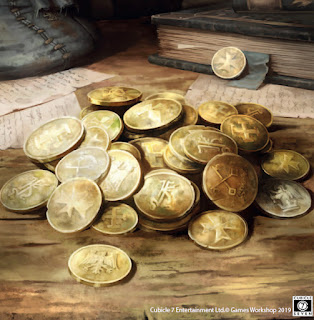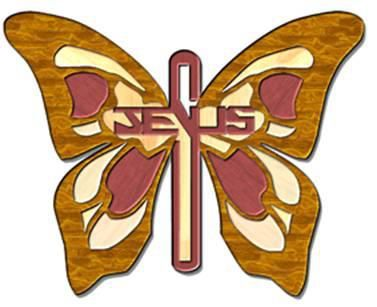Today is Trinity Sunday, the day
on which we celebrate all the different aspects of God.
It’s
actually a very difficult day to preach on, since it’s very easy to
get bogged down in the sort of theology which none of us understands, and which we can very easily get
wrong.
The trouble is, of course, that the concept of the
Trinity is trying to explain something that simply won’t go into
words.
We are accustomed to thinking of God as Father, Son and
Holy Spirit, and most of the time we don’t really stop and think
about it.
Trinity Sunday is the day we are expected to stop and
think!
The thing is, the first half of the Christian year,
which begins way back before Christmas, is the time when we think
about Jesus.
We prepare for the coming of the King, in Advent,
and then we remember his birth,
his being shown to the
Gentiles,
his presentation in the Temple as a baby
and,
some years, the time when he was a teenager and stayed behind in the
Temple rather than going home with his family.
Then we skip a
few years and remember his ministry,
his arrest, death and
resurrection,
and his ascension into heaven.
Then, as last
week, we remember the coming of the promised Holy Spirit,
and
today we celebrate God in all his Godness, as someone once put
it.
The second half of the year, all those Sundays after
Trinity,
tend to focus on different aspects of our Christian
life,
and how what we think we believe informs, or should
inform, the way we live.
And today is the fulcrum, the
changeover day;
the one day in the year when we are expected to
stop and think about God as Three and God as One.
And it
is difficult.
It’s a concept that doesn’t really go into
words, and so whatever we say about it is going to be in some way
flawed.
It took the early Church a good 400 years to work out
what it wanted to say about it, and even that is very obscure:
“That
we worship one God in Trinity, and Trinity in Unity;
Neither
confounding the persons nor dividing the substance.
For there is
one person of the Father, another of the Son, and another of the Holy
Spirit.
But the Godhead of the Father, of the Son, and of the
Holy Spirit is all one, the glory equal, the majesty coeternal.
Such
as the Father is, such is the Son, and such is the Holy Spirit.
The
Father uncreated, the Son uncreated, and the Holy Spirit
uncreated.
The Father incomprehensible, the Son
incomprehensible, and the Holy Spirit incomprehensible.”
The
whole thing incomprehensible, if you ask me!
One picture I
rather like is of H2O –
dihydrogen monoxide.
Which,
as you probably realise, can be a solid – ice,
a liquid –
water,
or a gas – steam.
All of which look and behave
totally differently,
and are used for totally different things,
but they are all H2O –
and life as we know it would
be impossible without it!
There are many other pictures,
of course.
I have heard people talk of an apple –
skin,
flesh and core.
Or an egg –
shell, white and yolk.
Or
perhaps three tins of soup –
lentil, tomato and mulligatawny
–
all different, but all soup.
But none of these images,
helpful as they might be,
is more than just the tiniest corner
of a picture of what the Trinity is like.
Nobody really
understands it.
And, of course, that is as it should be.
If
we could understand it, if we knew all the ins and outs and
ramifications of it, then we would be equal to God.
And it’s
very good for us to know that there are things about God we don’t
really understand!
It’s called, in the jargon, a
“mystery”.
That means something that we are never going to
understand, even after a lifetime of study.
Lots of things to do
with God are mysteries, in that sense.
Holy Communion, for one
–
we know what we mean when we take Communion,
but we
also know that it may very well mean something quite different,
but
equally valid, to the person standing next to us.
Or even the
Atonement –
none of us really understands exactly what
happened when Jesus died on the Cross, only that some sort of change
took place in the moral nature of the Universe.
Nevertheless,
for all practical purposes, we live very happily with not
understanding.
We synthesise some form of understanding that
suits us,
and, provided we know it is not the whole story,
that’s fine.
And the same applies to the Trinity.
It
doesn’t matter if we don’t really understand how God can be Three
and One at the same time;
what matters is that we love and
trust him, whatever!
Of course, the terms “Father, Son
and Holy Spirit” aren’t the only ones people use to refer to the
Trinity.
I’ve heard people say “Creator, Redeemer,
Sanctifier”, or “God the Unknown, God the Known, God the Worker
of Miracles”.
And there are plenty of other names for God used
in the Bible:
the Good Shepherd,
the Rock,
Strength
and Refuge,
Provider,
Emmanuel, which means “God with
us”,
even Wisdom, a female personification.
And, of
course, all those names do show us aspects, glimpses of Who God is
–
we can never grasp all of God, and it wouldn’t be right to
try.
Even Moses, you remember, was only allowed to see the
merest glimpse of the shadow of God’s back,
and that was
nearly too much for him.
But finding a name, an aspect of God,
that you need right now,
can help enormously in one’s prayers,
I find.
And that changes as we grow and change, and as our
perception of God grows and changes, and as life happens.
This
week, we might find it helpful to pray to the Good Shepherd;
perhaps
yesterday we needed to pray to Lady Wisdom, or Lady Love;
maybe
tomorrow we will need to meditate on the Rock, or the Shadow of a
great Rock in a weary land.
The Bible never actually uses the
word “Trinity” –
it’s a term that came later when they
tried to put it into words.
Strikes me, it’s one of the things
that we human beings like to do,
to try to put things into words
that won’t actually go!
Understandable, really, but it doesn’t
always help.
But the Bible does have the concept of the Trinity
–
it speaks of the Father, the Son and the Holy Spirit,
all
as God, yet makes it very clear that God is One!
That lovely
reading from Isaiah, that was our first reading this morning, about
our Creator:
“Have
you not known?
Have you not heard?
The LORD is the
everlasting God,
the Creator of the ends of the earth.
He
does not faint or grow weary;
his understanding is unsearchable.
He gives power to the faint,
and strengthens the
powerless.
Even youths will faint and be weary, and the young
will fall exhausted;
but those who wait for the LORD shall
renew their strength,
they shall mount up with wings like
eagles,
they shall run and not be weary,
they shall walk
and not faint.”
Says it all, doesn’t it!
And
today is not really a day for deep theological reflection, nor a day
for self-examination to see where our lives don’t measure up to
God’s standards.
It’s a day for enjoying God and praising
him!
“Have you not known?
Have you not heard?
The
LORD is the everlasting God,
the Creator of the ends of the
earth.
Amen!”







